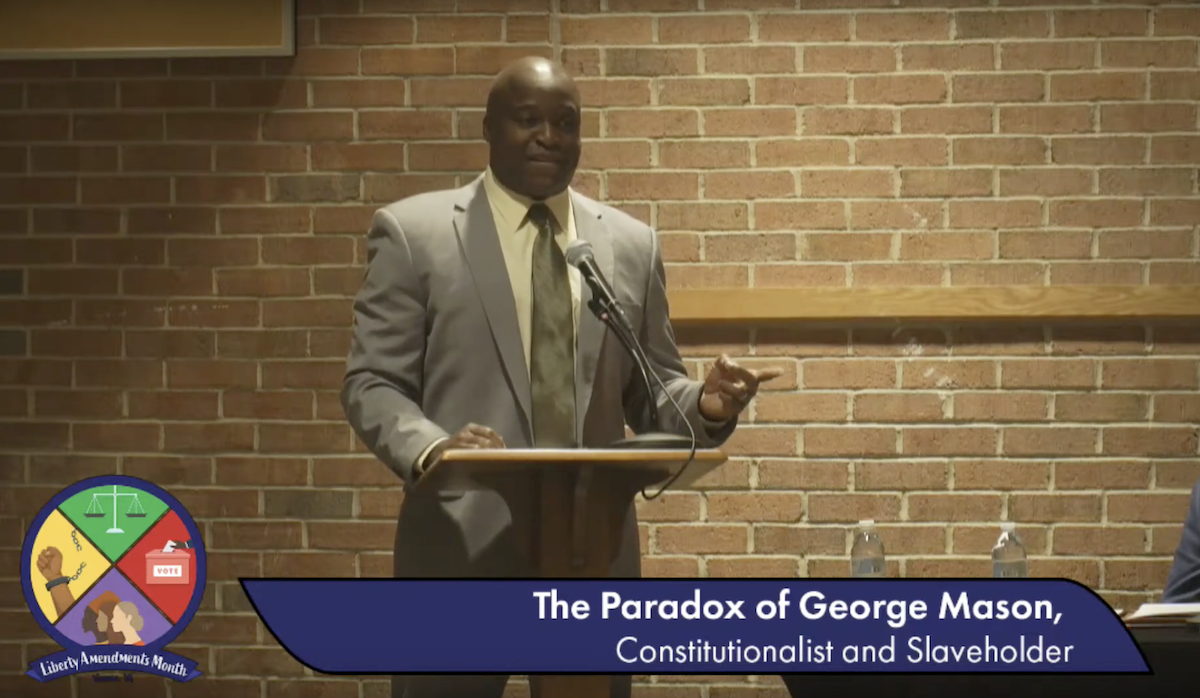
The “complicated” life of George Mason IV ties directly to George Mason University’s “profound” standing today as Virginia’s largest and most diverse public university, Mason President Gregory Washington said Thursday at a Town of Vienna Liberty Amendments Month event that celebrated constitutional freedoms.
Washington noted in his talk at the Vienna Community Center that Mason the man insisted on individual rights being built into the framework of the country’s founding but at the same time enslaved an estimated 128 people on his Gunston Hall plantation. Mason freed none of his slaves upon his death in 1792.
Those conflicting principles in recent years have led to a greater contextualization of the school’s namesake by students, faculty and leadership to present all sides of his complex legacy.
“Without the Bill of Rights, you can’t have the 13th, the 14th, the 15th and the 19th amendments because there would not be a process,” Washington said to the estimated 50 audience members “So while [Mason] did not facilitate the release of his slaves, the mechanism of the Bill of Rights, which he is credited with establishing, actually freed them.”
Introduced at the livestreamed (Washington remarks begin at 23:00) event by Virginia House of Delegates member Mark Keam, Washington devoted most of his 18-minute presentation to the impact of the university, which he deemed “a gem in your community.” He highlighted Mason’s majority-minority enrollment, with no racial or ethnic group comprising more than 40% of the student body and with no marked disparity in degree attainment among groups.
“You can’t find another institution in Virginia with that performance,” Washington said. “You can’t find another institution in the DMV with that performance. And you’d be hard-pressed to find another institution in the country with that level of performance.
“So when I say the institution is profound and special, it indeed is. What’s happening on that campus is not happening virtually anywhere else in the country.”
A related panel discussion that followed featured a presentation from George Oberle III, director of the Center for Mason Legacies and professor in the Department of History and Art History in the College of Humanities and Social Sciences. Joining Oberle on the panel were Vienna Councilman Chuck Anderson and Virginia Del. Ken Plum.
